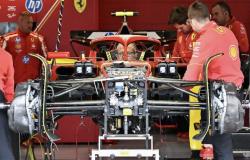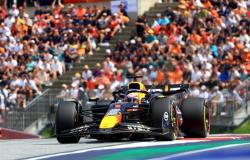Yesterday the gong for the 2023-24 budget rang. No capital gains were made in June, therefore the loss (improving from -85 in 2022-23) should be around 40 to 50 million. It is a small sign of Oaktree’s new course. The US fund could have asked management for some outgoing operations to avoid covering the deficit. It did not do so and, presumably, will have to make a capital injection in the fall: 22 million were covered by the conversion of an old Zhang credit, but the postponed deficit must also be covered by taking advantage of a Covid rule. The ownership horizon is medium-long term: there is no rush to chase a return on investment. But the principles of management aimed at sustainability, those are valid from the start.
earnings
—
The difference with the last autarchic years? Inter has to make ends meet but, financially speaking, it is no longer short of breath. The maxi-loan of 275 million plus interest charged to the parent company was cancelled with the enforcement of the pledge: the creditor has become the shareholder. It is true that Inter was only the object (or rather, the guarantee) of the financing but that sword of Damocles hung over the prospects and strategies of the club. Now there remains the 415 million bond, whose maturity in 2027 offers all the time to evaluate what to do. Inter has no cash emergencies. And the ownership, which boasts assets under management for 192 billion dollars, offers all the insurances in terms of possible support. An important aspect, this, also for the transfer campaign.
on the market
—
Oaktree is well aware of not depleting the Nerazzurri squad, a prerequisite for revenue development. Even at the cost of some initial effort. So president Beppe Marotta is moving on a dual track on the market: maintaining high competitiveness – therefore no sales of big names – and at the same time respecting a balance between purchases and sales and, above all, continuing to contain the “team cost”. This parameter, given by the sum of the salaries of the registered players and the amortization of the “cards”, is the thermometer of the entire management. The wage bill alone is, to date, increasing in 2024-25, in light of the renewals of Lautaro, Barella and Inzaghi (and Dimarco’s will come into force): we are talking about around 14 million more that double with the arrivals on a free transfer of Zielinski and Taremi, but which are partly offset by the departures of Cuadrado, Sanchez, Sensi, Klaassen, Audero (17 million saved). However, if we also calculate the amortizations, between extended contracts and free players, the balance compared to 2023-24 becomes positive for a couple of million (in the event of Correa’s devaluation on June 30, 2024, the savings will be greater).
more revenue
—
We are only at the beginning of the market and much more will happen, especially with the ancillary operations. In any case, the line is drawn: moving towards sustainability. Moreover, next season’s revenues will benefit from the income from the Club World Cup (with the question of whether to include them all in 2024-25 or half with 2025-26) and from the increased commercial revenues: the new main sponsor Betsson will bring in about twenty million more than last year. Consequently, the balance sheet at 30 June 2025 should confirm the trend of accounting rebalancing. Already in 2023-24, if there had not been the heavy interests, the profit would have been close. The goal is to achieve it by 2026.





